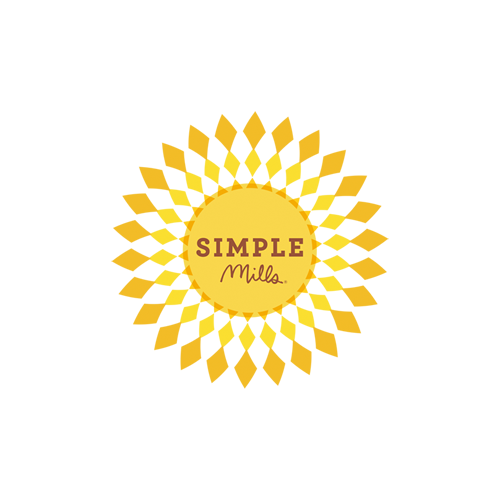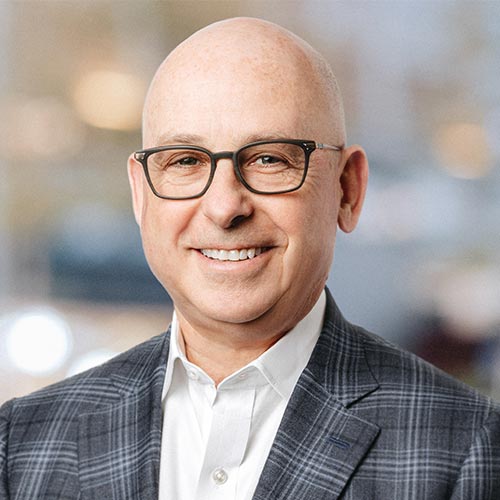Behind the Buyouts: Vestar's Bhat on Continuation Funds, Bilateral Recaps Podcast
Vestar’s Nikhil Bhat was interviewed by Nikitha Sattiraju for The Deal's Behind the Buyouts podcast where he discussed the Firm’s recent activity, including its exit of Edward Don & Company, its investment in Tech24 and the closing of its continuation vehicle for Circana. Nikhil also talked about Vestar’s partnership approach to investing and how it can provide the Firm with an advantage in a competitive deal market. Listen here or wherever you get your podcasts: https://lnkd.in/eXFS_rRk
Mergers & Acquisitions Reveals the 2024 Middle-Market Deals of the Year
Mergers & Acquisitions has named 11 deals as its 2024 Middle-Market Deals of the Year. Tech24 was named an Honorable Mention.
These exceptional transactions transcended a variety of market headwinds faced by dealmakers in the last year.
This marks our 17th annual Mid-Market M&A Awards. Here are this year’s winners, listed in alphabetical order and with links to full coverage. An additional 14 deals received honorable mentions. They are also listed below.
Authentic Restaurant Brands‘ take-private acquisition of Fiesta Restaurant Group was its largest acquisition to date.
The merger of Banyan Acquisition Corp. (NYSE: BYN), a publicly traded special purpose acquisition company, and Pinstripes Inc. resulted in an IPO.
Elf Beauty (NYSE: ELF)‘s acquisition of skincare brand Naturium is its largest so far.
Fanatics acquired PointsBet USA from Australian sports betting company Pointsbet Holdings after beating out competitor DraftKings (Nasdaq: DKNG) in a bidding war.
In a market where SaaS M&A activity has been down, LiveRamp Holdings (NYSE: RAMP)’s acquisition of startup Habu reflected its willingness to fund a significant inorganic expansion opportunity.
Lumentum Holdings (Nasdaq: LITE)’s acquisition of Hong Kong-based Cloud Light Technology involved a complex cross-border transaction.
Masonite International Corp. (NYSE: DOOR)’s acquisition of Fleetwood Aluminum Products broadened its product lineup and allowed it to enter new markets.
Mavis Tire Express Services Corp.’s acquisition of TBC Corporation’s retail tire business solidified its position as the largest independent tire retail dealership in North America.
In a deal that set a high benchmark for upfront consideration for the sale of a private, pre-clinical stage, biopharma company, Swiss pharmaceutical giant Novartis (NYSE: NVS) acquired DTx Pharma for $500 million in cash, plus an additional $500 million if certain milestones are met.
Canadian fintech company Nuvei Corp. (Nasdaq: NVEI)’s acquisition of payments company Paya Holdings from PE firm GTCR gave it a sizeable foothold in the United States.
Thermo Fisher Scientific (NYSE: TMO)’s acquisition of CorEvitas from Audax Private Equity complements its clinical research business.


Inside the Exit: How Vestar Grew Foodservice Business During COVID Lockdowns and Sold it to Sysco
PE Hub
Inside the exit: How Vestar grew foodservice biz during covid lockdowns and sold it to Sysco
By Obey Martin Manayiti
Published December 14, 2023
After a six-year hold, New York headquartered Vestar Capital Partners recently sold Edward Don & Co, a Woodridge, Illinois-based distributor of foodservice equipment and supplies, to Houston-based Sysco Corporation. PE Hub caught up with Nikhil Bhat, a managing director and co-head of investments at Vestar. Bhat detailed Don's growth strategy in a fragmented sector and discussed the subsequent recovery of the dining, travel and leisure sector after the pandemic lockdowns.
What was Vestar's strategy for growing Don?
Prior to our investment, Don had been a family-owned and family-operated business. Led by CEO Steve Don, the company had an established track record of organic growth, pairing a customer-first culture with forward thinking investments in systems, infrastructure and people to build what we believed was one of the best-operated companies in the space.
Steve was looking to bring on a capital partner to help drive an inorganic growth strategy; the foodservice equipment and supply distribution industry was highly fragmented and ripe for consolidation, and we shared his and his team's view that Don would serve as a high-quality platform for acquisitive growth. So, our primary investment thesis was to catalyze an acquisition strategy to help Don expand its geographic presence and add capabilities, while continuing to invest behind organic growth.
What role did add-ons play in growing Don?
Don made four acquisitions during our partnership [Myers Restaurant Supply, Shervan Colonel Equipment, Atlanta Fixture & Sales Co and Smith & Greene]. Our approach was to fully integrate acquisitions in order to support customer service levels and facilitate tight operational execution, so it's tough to split out precisely, but acquisitions represented a significant minority of the company's earnings growth during Vestar's investment.
What drove Don's growth?
Don grew pretty much across the board but there were a couple of areas that stood out. The company did a great job servicing multi-unit accounts - basically, growing regional restaurant chains that appreciated Don's high touch, integrated service, and valued the company's ability to grow alongside them as they expanded their own footprints. For similar reasons, Don also experienced strong traction with large national customers.
From a product perspective, disposables were a meaningful growth driver - restaurants invested heavily in takeout and delivery during the pandemic, and these channels' popularity has sustained even with the return of in person dining.
During the depths of the pandemic, when supply chains were disrupted and demand was ebbing, Don maintained its investment in inventory, fill rates and service levels to make sure customers got what they needed, when they needed it.
This customer-first mentality really paid dividends when the dining, travel and leisure markets recovered.
How did the deal with Sysco come together?
For confidentiality reasons, I can't comment on the specifics of the transaction. But in general, we believe management did a great job of creating a highly strategic asset - a fully integrated leader in the foodservice equipment and supplies distribution space with strong customer relationships, high-quality systems and logistics infrastructure, and a number of attractive avenues for continued growth. Both Sysco and Don saw the value in joining forces to provide their customers with even better service and a broader product assortment, which led to a great outcome for Don and Vestar
How did Don fit into your portfolio?
Vestar employs a thematically-oriented investment and go-to-market strategy, focused on opportunities where we believe we can add differentiated value to help management teams achieve their growth ambitions. We also pride ourselves on being good partners to family- and founder-owned businesses, with an approach that's designed to support growth and value creation while enhancing, not leaving behind, the culture that made those businesses so successful in the first place. Given our thematic focus in foodservice and route-based services, and Don's history as a family-owned business with a rich culture that was key to its success, the investment was a great fit for Vestar.
Are you planning to invest in this sector again?
We plan to continue to be active in both food service and route-based services. The secular trends and value creation levers that initially attracted us to Don continue to be relevant today, and given Vestar's deep sector experience, we believe we can be value-added partners to companies and management teams in both of these markets.
To that end, in October, Vestar announced an investment in Tech24, a leading commercial foodservice equipment repair and maintenance provider. Though it's a very different business, the value creation thesis shares many similarities to what made the Don investment so successful.
Vestar also has an existing investment in Roland Foods, a leading specialty foods importer. So, while we're unlikely to find another foodservice equipment and supplies distributor that stacks up to the high bar set by Don, we're certainly planning to leverage the experience and learnings from this investment as we pursue new opportunities in adjacent spaces.
Vestar Named to Mergers and Acquisitions 2023 Best Places to Work in Private Equity Awards as an Honorable Mention
Mergers & Acquisitions is recognizing eight firms for the inaugural Best Places to Work in Private Equity. The latest in our award series honors private equity firms who stand out amongst their peers in demonstrating leadership and innovation in their workplace cultures, policies and internal operations. They have also taken proactive measures to adapt to the changing demands of a post-pandemic world, as well as building environmental, social, and governance (ESG) and diversity, equity and inclusion (DEI) programs at their firms and portfolio companies.
Our awards program continues to evolve with the industry. Given that ESG is now more commonplace in private equity, and the growing prevalence of DEI, we decided to incorporate some of the criteria from our PE Innovators in ESG and M&A Leaders in DEI awards into the newly-minted Best Places to Work in PE. Consequently, we retired the standalone ESG and DEI awards.
To determine the winners, nominees were asked to detail how they stand out from competitors when it comes to retaining top talent, work-life balance, training, compensation, benefits, career mobility and leadership assessment. Nominees were also asked to describe how they implement and continue to grow ESG and DEI policies and programs.
The firms we are honoring include relatively new and longstanding PE shops. They were founded anywhere from five to more than 50 years ago. The combination of the traits that make them a great place to work range from an emphasis on professional development to lifestyle benefits, such as new parents being granted generous parental leave. All share an ongoing commitment to ESG and DEI.


Fast Company's "The Most Innovative Companies in Food of 2023"
By YASMIN GAGNE
Explore the full 2023 list of Fast Company’s Most Innovative Companies, 540 organizations that are reshaping industries and culture. We’ve selected the firms making the biggest impact across 54 categories, including advertising, beauty, design, and more.
Many of this year’s most innovative companies in food focused on products and packaging that help the planet. Twenty-nine-year-old tea company Tazo overhauled its entire supply chain to sell tea from farms that use regenerative farming practices. Similarly, Forever Oceans is farming fish in the middle of the ocean to protect coastal environments using tech it developed to process data from dozens of remote farm locations.
Spero Foods is using new ingredients to replace pantry staples. The company, which started making cheese from sunflower seeds and other vegan staples, launched an egg substitute made from seven natural ingredients including pumpkin seeds. Cooking oil company Zero Acre Farms launched a new fermented oil made through a process that has a 90% smaller environmental footprint than traditional vegetable oil. Other companies like Simple Mills have sought to use unloved, yet vital, ingredients, such as buckwheat, which helps farmers prevent the spread of weeds.
Other firms have reduced their environmental footprint by changing their packaging. Graphic Packaging created a cardboard packaging system for can multipacks that eliminates the need for plastic rings and shrink wrap. SavrPack launched thermodynamic packets that keep fruit and vegetables stored inside fresher for longer, reducing waste from households and grocery stores.
Other companies are being recognized for designing delightful products that expand our palates. YouTube star MrBeast launched snacks called Feastables and has used the snacks to create more of his signature stunt-filled content. Newly launched Heyday Canning has turned a boring pantry staple—canned beans—into tasty meals
- MRBEAST
For selling fans on craveable content
While consumer-facing facing brands scramble to sign on influencers as ambassadors, YouTuber MrBeast (aka Jimmy Donaldson) turned the tables and developed a breakout restaurant empire on his own, marketing it directly to his 116 million subscribers. In 2020, he created the virtual restaurant MrBeast Burger, announcing the new brand via a YouTube video that has since amassed more than 110 million views. The restaurant, which is now available in 1,700 locations across the U.S. and the U.K, opened its first physical location at the American Dream Mall in New Jersey this past September. The pandemonium that ensued when a reported 10,000 fans showed up at the mall for its debut became a viral moment in and of itself.
In 2022, MrBeast used his marketing playbook to expand further into food, spinning out the snack brand Feastables, which makes chocolate bars and cookies. (Jim Murray, the former president of the protein bar company RXBar, is Feastables’ CEO and cofounder.) Within four months, the brand reported $10 million in sales, and in September it launched in Walmart.
The key to the success of both brands: MrBeast isn’t just cashing in on his internet fame to sell products: He’s using the products themselves to create stunt-filled craveable content for his followers. He paired his Feastables announcement with a sweepstakes giveaway of $1 million worth of prizes (Teslas, Sea Doos, Beats by Dre earbuds), drawing so much user traffic that his site crashed. And then he took the grand prize winners on an unorthodox tour of his Feastables factory. The resulting video, I Built Willy Wonka’s Chocolate Factory!, now has 128 million views.
For the MrBeast Burger launch at the American Dream mall, he announced that he’d give $10,000 to 100 people who could hide in the mall without being found. One day after the video of the antic-filled game of hide-and-seek (56 million views) went live, MrBeast cut the ribbon of his first brick-and-mortar outpost.
Read more about MrBeast, honored as No. 46 on Fast Company’s list of the World’s 50 Most Innovative Companies of 2023.
- TAZO
For making a major commitment to regenerative farming
This year, Tazo, one of the biggest tea companies in the United States, rolled out a plan to source its entire tea supply chain exclusively from farms that use regenerative farming practices by 2026. The Englewood Cliffs, New Jersey–based company has already started making changes: Under the new plan, every aspect of the business will be reevaluated through a regenerative-focused lens, whether it’s how the company treats and compensates farmers or how it sources ingredients and packaging. As a first step, the brand reformulated its four best-selling blends with ingredients grown using regenerative practices, such as monitoring soil health, providing pollinator habitats on farms, and using cover crops. The new formulations meet requirements from the USDA, Fair Trade USA, and the Rainforest Alliance. By the end of 2023, the tea brand expects that 60% to 80% of its products will reflect regenerative practices, and it plans to use exclusively reusable, recyclable, or compostable packaging by 2025. In 2022, the company also donated approximately $1.475 million to mission-aligned organizations through its 1% for the Planet commitment.
- ATHLETIC BREWING
For taking nonalcoholic beers mainstream
Nonalcoholic brewing company Athletic Brewing has developed a cult following since its launch six years ago, becoming the largest alcohol-free craft beer brand in the United States. The brand, which appeals to consumers with its limited-edition drops and social media partnerships with influencers, including college athletes, grew from producing 12,000 cases of beer in 2018 to 1.4 million in 2021. In June, it increased its production capacity dramatically—to more than 5 million cases—with the opening of a new 150,000-square-foot facility in Milford, Connecticut, one of the biggest nonalcoholic breweries in the world. Athletic made moves to further mainstream its brews by taking a $50 million investment from Keurig Dr Pepper Inc. in November, which gave KDP a minority stake in the company. In 2022, Athletic scaled its distribution, and now its brews are sold in all 50 states. The company also recently expanded its U.K. presence via new placements with the grocery chain Tesco.
- FOREVER OCEANS
For harvesting fish sustainably in the deep ocean
ADVERTISEMENT
Traditional fish farms in bays and estuaries can wreak havoc on coastal environments. The offshore fish farming company Forever Oceans has developed an alternative approach: It raises sashimi-grade fish in the middle of the ocean—more than a mile below the surface. Forever Oceans uses AI-powered cameras, remote-controlled robots, and a single-point mooring system to minimize its farms’ impact on the seafloor and ocean ecosystems. In 2022, at its farm off the coast of Panama, the company finalized the development of its offshore remote technology and systems. These include a software platform capable of ingesting data from dozens of remote farm locations (covering everything from water quality to fish behavior) and submersible growing enclosures that are larger than Olympic-sized pools and capable of withstanding a Category 4 hurricane. Forever Oceans began harvesting its first cohort of fish in 2022. Its Kanpachi is now being served in more than 75 restaurants across the U.S. The company also signed a 20-year lease on a farm off the coast of Brazil, the largest of its kind.
- SPERO FOODS
For making vegan eggs out of ultra-nutritious pumpkin seeds.
Spero, the company behind vegan staples like Sunflower Cheese, created a new plant-based egg in late 2022. The keto- and allergen-safe Pepita Egg is made from just seven ingredients, including pumpkin seeds, which are rich in protein, zinc, and magnesium. According to the company, the Pepita Egg is the only pourable clean label egg substitute on the market, meaning that it is made of natural ingredients of beneficial nutritional value. The Pepita Egg launched in Sprouts Farmers Markets across the U.S. The company’s other products are now stocked in grocery chains that include Fresh Market, Whole Foods, Kroger, and more.
- SAVRPAK
For tripling the lifespan of perishable fruits and veggies
In 2021, SavrPak introduced its flagship product: a small, biodegradable packet that can be placed inside takeout and delivery food containers to capture condensation and keep meals crispy and dry. In 2022, the company turned its attention to grocery stores, launching a thermodynamic packet that can keep delicate produce fresher than traditional packaging. Notably, though other companies have developed ways to extend the shelf life of perishable food, SavrPak is the only one to address produce that doesn’t have protective skins, such as berries and lettuce. In trials with produce growers, SavrPak’s packets extended the shelf life of blackberries, raspberries, and strawberries by four to seven days and Persian cucumbers by 28 days, allowing grocers to keep these items on shelves for longer, reducing food waste. The packaging is already being used at select supermarkets, including Mexico’s Justo chain, and will roll out in Spain, the U.K., Peru, and Canada next year.
- GRAPHIC PACKAGING INTERNATIONAL
For inventing a greener way to package cans
Atlanta-based design company Graphic Packaging developed Keelclip, a cardboard packaging system designed for can multipacks. Launched in Europe in 2019, Keelclip eliminates the need for plastic rings and shrink wrap to hold cans together; it saved an estimated 3 million pounds of plastic in 2019 alone. This year, the company partnered with Coca-Cola to bring the invention to the United States for the first time, installing a Keelclip packing machine at a production facility in New York. The machine is estimated to save 75,000 pounds of plastic annually in the production of 3.1 million cases. To date, the technology has been used to package more than 550 million packs worldwide. Coca-Cola has stated that it plans to roll out the packaging solution across the world.
- SIMPLE MILLS
For championing biodiversity by making products with unloved ingredients
While many companies start with a pre-existing product and try to find more sustainable ways of producing it, ten-year-old Simple Mills has adopted a strategy of identifying ingredients that promote biodiversity and using them to develop products. The company launched two milestone products this year: Simple Mills’ Nut Butter Stuffed Sandwich Cookies and Nut & Seed Flour All Purpose Baking Mix. Both are made with buckwheat, a fast-growing plant that can rejuvenate soil and help prevent the spread of invasive weeds. With distribution in more than 28,000 stores, Simple Mills is helping expand market demand for buckwheat and other sustainable ingredients. This year, the company also started working with farmers in Java, Indonesia, to implement regenerative agricultural practices in coconut sugar harvesting, and it launched an initiative to make almond farming more sustainable in California.
- HEYDAY CANNING
For creating a new category: premium beans
Canned food startup Heyday Canning has taken a cheap pantry staple—canned beans—and turned it into a tasty meal. Cofounded in fall 2022 by Kat Kavner, a Clif Bar alum, and Jaime Tulley, who worked at Sweet Earth Foods, the brand launched six varieties of flavored beans, including harissa lemon chickpeas and kimchi sesame navy beans. The cans are priced at $4.99 and designed to compete with $0.99 beans in the canned goods aisle. The brand was created during the pandemic, when the cofounders saw many consumers reaching for canned food, only to find canned beans pretty bland. In November, Heyday began selling direct to consumer and in Sprouts grocers nationwide. It’s rolling out to Whole Foods in 2023.
- ZERO ACRE FARMS
For fermenting cooking oil that’s healthier and more sustainable than other oils
Zero Acre Farms produces guilt-free cooking oil that has a 90% smaller environmental footprint than traditional vegetable oil. Using fermentation, a process by which microbial cultures convert sugarcane into fat, Zero Acre Farms can create oil in days, compared to the months or years it takes for farmers to harvest oil from crops. Zero Acre’s oil can be produced with 17 times less land than traditional olive oil requires, and 11 times less water than sunflower oil. Released in July 2022 and sold (for now) direct-to-consumer, the oil is starting to draw in a faithful consumer base: The month after launching, Zero Acre saw a 500% increase in its returning customer rate. The company raised $37 million in February 2022 to help scale its production and bring its oils to a wider market.
Beauty Dealmakers Bullish on Hair Care M&A
Vestar’s Diya Talwar was recently featured in The Deal offering her views on recent trends in haircare M&A.
Regarding brands now catering to multicultural communities, Diya said “That’s a long term, sustainable tailwind in haircare. We're seeing underrepresented demographics and hair types such as textured hair, curly hair and frizzy hair getting more attention.” The article also noted that Vestar is evaluating investment opportunities in the category.
Visit The Deal to read the entire article (subscription required).
Vestar invested in Nox Health to help you get a good night’s sleep
PE Hub
Vestar invested in Nox Health to help you get a good night’s sleep
The investment fits Vestar’s strategy of improving health outcomes, lowering costs and enhancing patient experience.
By Aaron Weitzman
Published December 15, 2022
Vestar Capital Partners recently made a significant minority strategic growth investment in Nox Health, a one-stop, holistic solution helping to identify, address and resolve sleep issues across the globe.
PE Hub spoke with Michael Vaupen, managing director at the New York-based firm to talk about what enticed Vestar to the Atlanta-based sleep health company, how the deal making process went and the plans to grow and scale the asset.
Vaupen said that Vestar was attracted to Nox for several reasons, with the first being the market opportunity, as sleep health is a “large and substantially underserved market with durable growth drivers.”
“Second, Nox’s solutions are well-positioned against this attractive market backdrop,” he said. “The company has built a differentiated portfolio of proprietary medical device IP, advanced software and analytics, and technology-enabled care management solutions which support the delivery of sleep care across the continuum of providers, payers and patient populations.”
The investment is well-aligned to Vestar’s thematic focus of solutions that improve health outcomes, lower costs and enhance patient experience, according to Vaupen.
The firm also sees many tailwinds that will help this investment.
“Aging demographics, increasing awareness of sleep health and an ongoing shift towards home-based testing will drive steady growth and demand for sleep diagnostics globally,” said Vaupen. “In addition, there is a growing body of clinical evidence strongly linking poor sleep health with chronic disease conditions, including hypertension and diabetes. As US healthcare continues to shift towards value-based care, we believe plan sponsors and at-risk providers will continue to seek ways to lower costs and improve outcomes within their managed populations – sleep care is playing an increasingly important role.”
He also added that historically, sleep disorders have been significantly underdiagnosed and therapy compliance rates have been low due to a fragmented and uncoordinated patient experience in sleep care.
“Nox’s patient-centric approach to comprehensive sleep care management, leveraging virtual care and home testing technology, results in a more seamless patient experience and leads to demonstrably better health outcomes and lower costs,” he said.
He noted that the Nox management team has built a “solid foundational platform that has delivered consistent and impressive growth through the years,” and that the capital from Vestar will help accelerate a number of organic growth initiatives.
“Those include development of the company’s sleep diagnostic devices and technology, as well as commercial team expansion to drive further adoption of Nox’s value-based care management services within employers and health plans,” explained Vaupen. “We also see an opportunity to augment Nox’s solution offering through strategic acquisitions.”
Despite the challenging and choppy deal environment this year, Vaupen said that the firm continued to “pick spots and focus on opportunities where we can leverage Vestar’s deep network, relationships and prior investment experience to bring differentiated value-add to a growth thesis.”
“Nox met many of those characteristics which allowed us to ‘lean into’ getting a deal done,” he said.
PE Hub Podcast: How PE pros are handling higher interest rates and the slowdown in dealmaking
In this first episode of the PE Hub miniseries, Private Markets and the End of Cheap Money, reporters talks to dealmakers from Corsair, OEP, Vestar and more to hear how sponsors are coping with the higher price of ‘L’ in LBOs.
Central banks around the world have been raising interest rates to combat inflation, making borrowing more expensive for everyone. That includes private equity firms, which for years have enjoyed historically low borrowing costs to finance leveraged buyouts. So how are private equity firms copying with the end of cheap money? To find out, reporters and editors across several PEI Group titles have spent the last few months speaking to dozens of industry participants to get their perspectives.
In this first episode of the five-part podcast miniseries, Private Markets and the End of Cheap Money, we look at how higher interest rates are playing out in private equity transactions and why certain areas of M&A (deals in the mid-market, in particular) may be facing outcomes different from what you might expect.
Mary Kathleen Flynn, editor-in-chief of PE Hub, spoke with a wide range of dealmakers, including private equity firm leaders, lenders and investment bankers, about the impact of high interest rates and other factors like high inflation on PE-backed transactions.
Featured in this episode: Norm Alpert, founding partner at Vestar Capital Partners; Greg Belinfanti, senior managing director of One Equity Partners; Marc Leder, co-founder and co-CEO of Sun Capital Partners; Ignacio Jayanti, CEO of Corsair Capital; Milwood Hobbs Jr, managing director and head of North American sourcing and origination at Oaktree; Michelle Handy, managing director and head of portfolio and underwriting of First Eagle Alternative Credit’s direct lending platform; and Peg Jackson, managing director, software, internet and digital media at Stifel.
Listen here on Apple Podcasts or on the PE Hub website.
Simple Mills Appoints Sheryl O'Loughlin to Board of Directors
CHICAGO--(BUSINESS WIRE)--Simple Mills, the company on a mission to advance the holistic health of the planet and its people through delicious, better-for-you foods, today announced the addition of CPG industry veteran, Sheryl O’Loughlin, to its Board of Directors. O’Loughlin is an accomplished entrepreneur, CEO, author, and board member bringing extensive experience leading fast-growing, innovative consumer products companies. In her new role, O’Loughlin will provide strategic counsel and guidance to help support Simple Mills in scaling the company to the next level, creating opportunity for the brand to have a greater positive impact on its mission to advance the holistic health of the planet and its people.
A seasoned leader with more than 30 years of experience scaling CPG companies, O’Loughlin previously served as the CEO of both Clif Bar & Company and REBBL, and Co-Founder and former CEO of Plum Organics. During her time at REBBL, a super herb adaptogen beverage, O’Loughlin architected a product innovation, distribution, and velocity strategy that grew revenue 23-fold and increased margins by 20 points. This growth allowed the brand to work toward a regenerative, just supply chain and donate $1 million to Not For Sale, a nonprofit dedicated to co-creating a future without human trafficking. Alongside her outstanding leadership roles, O’Loughlin shares her entrepreneurial skillset with the Simple Mills team as the former Executive Director for the Center of Entrepreneurial Studies at the Stanford Graduate School of Business and author of “Killing It: An Entrepreneur’s Guide to Keeping Your Head Without Losing Your Heart.” She also has experience serving on several other notable CPG brands boards, sitting currently on the boards of PetIQ, Inc. (Nasdaq: PETQ), Miyoko’s Creamery, and S. Martinelli & Co. In this new role, O’Loughlin plans to draw on her expertise to amplify Simple Mills’ mission to pioneer the way the world eats by crafting food with purposeful ingredients intentionally selected to help advance the health of both people and planet.
“I am honored to be part of the highly-esteemed Simple Mills Board of Directors, especially on the heels of a successful growth year for the company,” said O’Loughlin. “I’m a longtime fan of the brand and particularly appreciate how Simple Mills honors the intersection of people and planetary health by utilizing nutrient-dense ingredients and adopting a unique approach to regenerative agriculture that have the potential to build healthy soil. It’s my passion to assist companies like Simple Mills in scaling their business in a way that aligns with their mission and values, while providing an example to other companies that an ethical business framework aiming to change our food system can be wildly successful. I've dedicated my time and effort to supporting talented leaders like Katlin Smith achieve their goals, and I'm thrilled at the opportunity to support the Simple Mills team on their journey to helping better the world.”
O’Loughlin joins Simple Mills Board of Directors alongside other leading experts in the space, including Amanda Steele, former Senior Vice President of Marketing at Annie’s and Numi Organic Tea; Dan O'Connell, Founder and CEO at Vestar Capital Partners; Kevin Mundt, Managing Director at Vestar Capital Partners; George Peinado, member at Hyde Park Angels; and Lew Semones former General Partner at Charlotte Capital Partners
Simple Mills better-for-you products are sold in more than 28,000 natural and conventional stores across the country. This includes national distribution with top U.S. retailers, including Whole Foods, Sprouts, Target, Walmart and Costco. In the last five years alone, Simple Mills has entered more than 20,000 new stores, increasing its brick-and-mortar availability by more than 300%. Aside from significant retailer growth, the brand also has a strong e-commerce presence both on Amazon and its own website. To learn more about Simple Mills, its commitment to advancing regenerative agriculture through ever-growing product innovations, and to find a retailer near you, please visit www.simplemills.com.
About Simple Mills
Founded in 2012, Simple Mills is a leading provider of better-for-you crackers, cookies, snack bars and baking mixes made with clean, nutrient-dense ingredients and nothing artificial, ever. Celebrating its tenth anniversary this year, the company has disrupted center-aisle grocery categories to become the #1 baking mix brand, #1 cracker brand, #1 cookie brand in the natural channel1 with distribution in over 28,000 stores nationwide. Its mission is to advance the holistic health of the planet and its people by positively impacting the way food is made. For more information, visit www.simplemills.com.
Vestar VII Portfolio Company Simple Mills Named One of Fast Company’s 2022 Brands That Matter
Fast Company’s 2022 Brands That Matter list recognizes companies leading on social action, sustainability, inclusivity, and fun
________________________________________
Fast Company’s Brands That Matter awards program aims to get beyond corporate vision statements and management talking points, celebrating a company’s connection with its audience through cultural relevance, social impact, and clear, authentic communication.
Now in its second year, Brands That Matter has grown from 95 honorees last year to 144 in 2022. While judging applications, editorial staff looked for a clear synthesis between how the brand presents itself and how its customers perceive it. This year’s honorees are divided between 70 brands in 22 categories and our main list, which contains 74 brands that broadly fit into five themes—Community-Minded Business, Elevating the Everyday, Fun and Fandom, Mind and Body, and Spreading the Word.
All of the honorees clearly generated enthusiasm among their customers, offering a model of what other brands should be aiming for, and what a brand, at its best, can achieve.
________________________________________
Mind and Body Category
These 19 brands are helping people sharpen their minds, look good, and improve their health -- BY JEFF BEER
Need to look good, feel good, or learn a new language? These Brands That Matter winners have you covered.
The brands we trust with our physical and mental well-being play a unique role in our lives. From jeans and make-up, to fitness recovery and fertility, these companies are building relationships with customers beyond the products they’re selling. As Brands That Matter honorees, the following 20 brands demonstrated a commitment to mind and body—whether that’s fighting hunger, making food more sustainable, or preventing skin cancer.
Duolingo has gamified language learning, while also finding new ways to tap into culture. On one hand, its mascot, Duo the Owl, is a TikTok star, while on the other, the brand made a free Ukrainian phrasebook for people to help refugees from that country’s war with Russia. Abercrombie not only ditched the dark mall stores and too-cool vibe for a more inclusive brand, which it baked into its products like Curve Love jeans that take into account a much more diverse variety of body types. Kindbody has worked to take fertility healthcare from a barely whispered issue into a more accessible and inclusive service for all.
Here are the brands leading the way for our mind and body.
ABERCROMBIE & FITCH
Once the domain of shirtless models and dimly lit mall stores, Abercrombie & Fitch has gone through a more recent brand revitalization. That image lift includes combining TikTok creativity and community engagement with social issues through support for The Steve Fund and fellow Brands That Matter honoree The Trevor Project, as well as smart product moves like its Curve Love denim fits, and the launch of a new performance-active brand called YPB.
ABOUT-FACE
About-Face has become a TikTok and fan favorite for fuss-free makeup that is still plenty extra—and that’s by design. Founder Ashley Frangipane, aka singer-songwriter Halsey, developed the Technicolor, texture-forward cosmetics (think chunky glitter, buttery shimmer, and glossy shine) to be as cost conscious as they are extravagant. Most of About-face’s clean, vegan products—from liquid shadow Matte Fluid Eye Paint to the super-creamy Cheek Freak Blush Balm—are priced between $12 and $18, can be easily blended out with fingers, and are designed to offer users versatility in constructing whatever look they want. Following a solid launch in January 2021 as a direct-to-consumer brand, it hit more than 500 Ulta locations and the beauty retailer’s website in June, bringing the products to a wider audience. The company also debuted the even lower-priced but equally Gen Z-savvy AF94 by Halsey line, which launched exclusively at Walmart in July. —Rachel Kim Raczka
COURSERA
Coursera has more than 100 million registered learners, and counts as partners more than 250 leading universities and industry educators—including Yale, AWS, and Microsoft—to which it offers job-relevant courses, hands-on projects, certificates, and bachelor’s and master’s degrees. The brand’s biggest impact had been aimed at expanding access to education for underserved communities around the world, with initiatives like the American Dream Academy. Undertaken alongside the Milken Center for Advancing the American Dream, it will serve more than 200,000 underemployed people over three years. The brand has also worked with organizations in Barbados to reskill up to 120,000 pandemic-impacted workers and provide 20,000 scholarships for Barbadian women.
DUOLINGO
Duolingo brings a sense of humor to TikTok with the antics of its owl mascot, but data show it’s serious about language learning. The language learning platform finds ways to tap into culture, with a 56% boost in users studying Italian in the two days after Italy’s song won Eurovision 2021, and 40% more interest in learning Korean in the two weeks after Squid Game’s debut than in the week prior. With the Russian invasion of Ukraine driving interest in learning Ukrainian—and a 577% increase in users learning Ukrainian—Duolingo donated that ad revenue to relief organizations.
ELTAMD SKIN CARE
Long trusted as one of the best sunscreen brands under the, uh, sun, EltaMD has worked over the past year to create brand work that highlight’s lesser-known skin cancer risk. While skin cancer is often associated with fair skin, survival rates for Black Americans who contract it is much lower, and one of the most common sites of skin cancer is the bottom of the foot. Now you know.
IMPOSSIBLE FOODS
A name synonymous with plant-based meat products, Impossible has further expanded its footprint over the past year by releasing faux sausage, chicken nuggets, and pork products, while also appealing to meat eaters. According to Chicago-based analytics company Numerator, nearly 100% of Impossible Foods buyers also buy animal-derived products.
JUST EGG
The brand’s plant-based egg is made from mung beans that use 83% less land, 98% less water, and produces 93% fewer carbon emissions than conventional eggs. This year, Just Egg launched with chains like Caribou Coffee and Peet’s Coffee, and in New York City delis through fellow Brands That Matter honoree Plantega—bringing its plant-based message to breakfast sandwiches across the country.
KINDBODY
The fertility benefits provider aims to help fertility healthcare in the U.S. evolve from fragmented, inequitable, expensive, and inaccessible to the most accessible. This year, Kindbody launched at-home fertility tests for women and men, further expanding access, and more than 10,000 people attended fertility education events hosted by the brand.
LITTLE SPOON
Healthy baby-food-meets-celebrity cult brand Little Spoon has found a way to charm both parents and their little ones. Kids love the food enough to boost sales by 110% in the past year and see the company expand into older kids’ meals and snacks. Its pop cultural cache includes celeb supporters like Serena Williams, Bobbi Brown, Arianna Huffington, and Rebecca Minkoff, as well as a board game called Is This Normal that sold out with zero advertising.
OLAY
Olay has leaned into its brand muscle by helping to get more BIPOC—especially women of color—into STEM fields. Projects in the past year have included the #DecodeTheBias campaign, which sent 1,200 girls to code camp with Black Girls CODE, and a Million Women Mentors partnership, which mentored 1,000 girls interested in STEM. The brand also has committed to having no retouching or distortion of the skin in any of its U.S. ads, including content created by influencers for the brand.
POSHMARK
With more than 80 million global users, the secondhand clothing platform was acquired by South Korean tech company Naver Corp in October for $1.2 billion. In the year preceding the acquisition, the brand built out new features that allow users to shop by trends and repost items they’ve purchased, as well as giving sellers tools for real-time data on their sales and inventory. The brand also partnered with Snap to launch Poshmark Mini, a social shopping experience inside of Snapchat.
SIMPLE MILLS
This is a brand that takes the planet’s health seriously by making regenerative agriculture a central part of its supply chain in an effort to make it more mainstream. Simple Mills designed products like its Sweet Thins and Organic Seed Flour Crackers to include a diverse variety of ingredients—watermelon seed flour, for example—that create market demand for underrepresented crops to enhance agricultural biodiversity. Also, it’s building direct farmer contracts that include technical assistance and financial incentives for adopting regenerative principles.
SUMMERSALT
Summersalt has made its mission dismantling the toxic imagery around swimsuit marketing (and the negative ways it can affect body image). The brand’s products prioritize non-sexualized designs and body-positive advertising. Its “Every Body is a Summersalt Body” campaign focused on body positivity and self-confidence, featuring a diverse set of inspiring women. Participants included Olympian and registered nurse Ilona Maher, models and podcast cohosts Michaela and Hunter McGrady, best-selling novelist Candace Bushnell, WNBA All-Star Betnijah Laney, and others.
THE BODY SHOP
On the heels of the #BlackTikTokStrike, the brand launched its rejuvenated line of Body Butter in North America by engaging a diverse and talented group to develop its ad campaign, which created an original dance aimed at spreading love, body positivity, and joy. The viral dance shone a bright light on creators whose creativity and talents had been marginalized on the platform—and a month after launch, TikTok creator and campaign creative Laila Mohammad won the first-ever VMA award for best viral dance.
THE NORTH FACE
Read our cover story on how filmmaker and adventurer Jimmy Chin is helping the North Face explore important new terrain: a more diverse outdoors.
THE REALREAL
The luxury fashion consignment platform launched its Circular ReSource Lab last year to create impactful solutions to this fashion waste crisis, including the ReCollection upcycling program, in partnership with brands like Balenciaga and Stella McCartney, which turns damaged items into one-of-a-kind pieces.
THERABODY
Though it’s been around since 2009, Therabody (née Theragun) has had a transformative past couple years. The company has expanded its roster of products beyond its flagship massage gun to include everything from new devices to a CBD line. Therabody also has been opening brick-and-mortar retail stores, as well as several Reset locations, billed as “whole-body wellness centers” that feature signature massage and other therapeutic treatments, offering customers a chance to test out the latest products. These include compression therapy boots, designed for massage and post-workout recovery; a handheld facial health tool with micro-current and LED functionality, as well as cold and hot therapy; and a burgeoning period pain relief program delivered via the company’s PowerDot Device. Therabody also has been giving back, including partnerships with Red, to donate 2% of the purchase price of special red devices and certain CBD products to health-focused programs. —Danica Lo
VIRGIN PULSE
People rarely get excited about a health management and benefits navigation platform, but Virgin Pulse has managed to buck that trend and get users engaged. Used by leading companies and national health plans, the company is focused on helping people build health behaviors via its Homebase for Health, which offers live coaching and programs on everything from mindfulness and nutrition to musculoskeletal health and quitting tobacco. By Virgin Pulse’s accounting, 73% of users developed positive daily habits in 2021, and its use of behavioral science, incentives, and personalization led to sustained, continuous engagement of 50%, compared with the industry average of about 5%.
QUAKER
The PepsiCo-owned brand worked over the past year to expand its Quaker Qrece program, which targets malnutrition in Latin America through donations of oat-based food products, and has helped more than 10,000 children in Mexico and Guatemala, aiming to reach 50,000 kids by 2025. The work also has attracted more than 22 million media impression and 340 million unique visitors to its website.
This article is part of Fast Company’s 2022 Brands That Matter awards. Explore the full list of brands whose success has come from embodying their purpose in a way that resonates with their customers.







